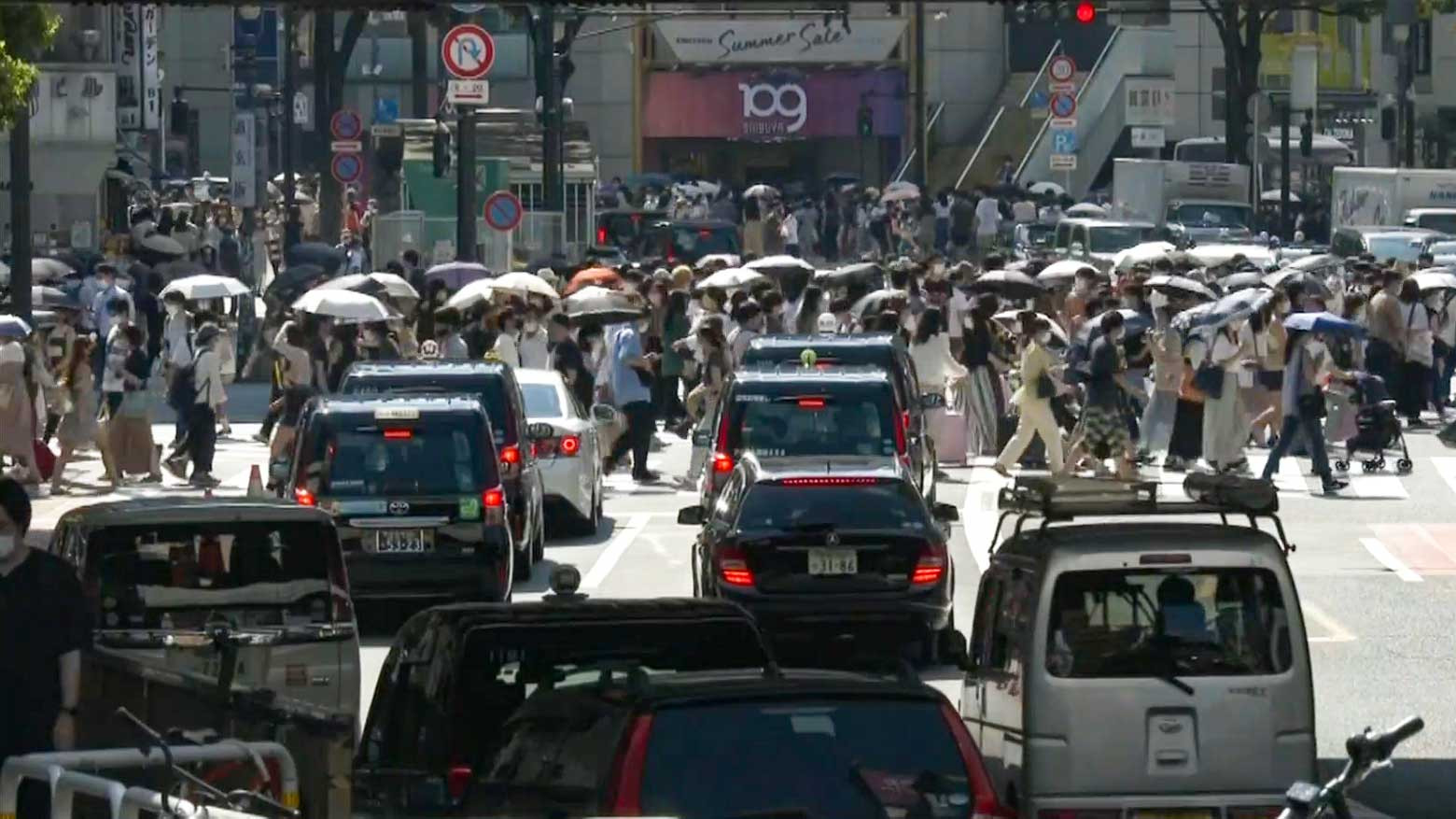Wednesday's tally of 3,177 new cases marked the second straight record daily high, and was up more than 1,300 from a week earlier. Nationwide, the number topped 9,500 for the first time since the start of the pandemic.
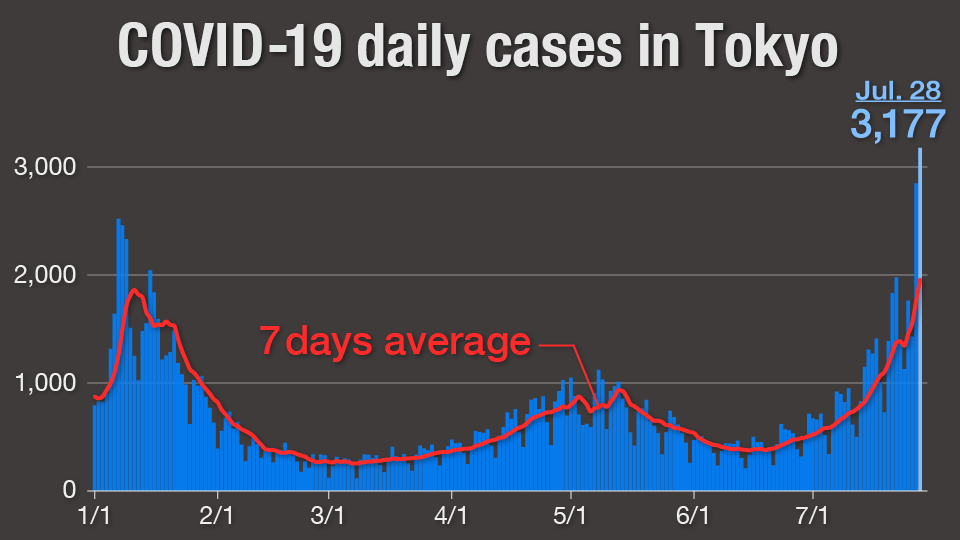
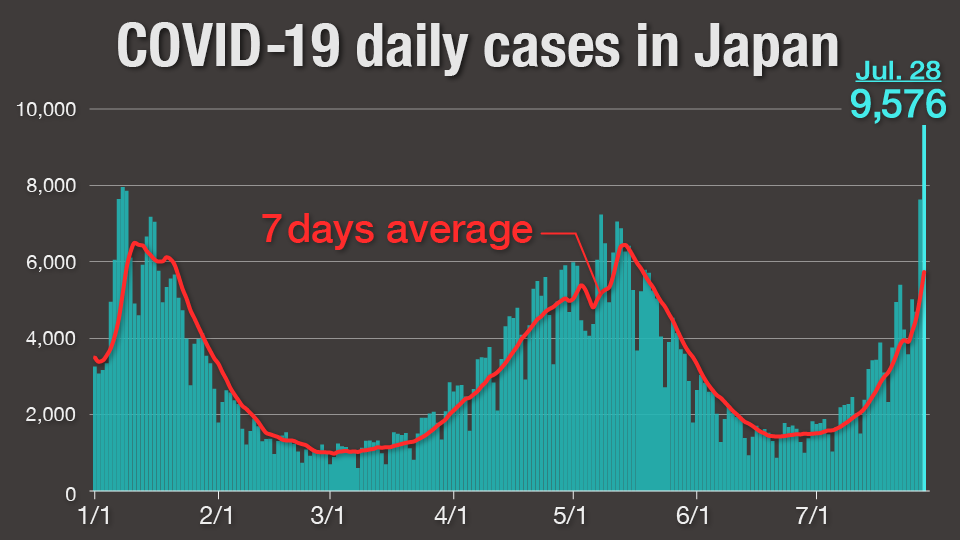
The infection rate is also rising in Tokyo's neighboring prefectures. Kanagawa, Saitama, and Chiba all reported record highs on Wednesday and are planning to ask the central government to declare a state of emergency that covers their regions. Officials in Chiba say people commuting to work in Tokyo are driving the surge.
A member of the government's coronavirus panel, Toho University professor Tateda Kazuhiro, says the numbers suggest the state of emergency, which has been in place for Tokyo since July 12, is not working.
"It's so far had little or no impact," he says. "The rapid surge in cases can be attributed to an increased movement of people due to a 4-day holiday weekend, the Olympics and Paralympics, and summer vacations. We must keep in mind that the number will increase. It is time to introduce tighter restrictions."
Japan's emergency measures are not as strict as lockdowns enforced in other countries and have been criticized as ineffective throughout the pandemic.
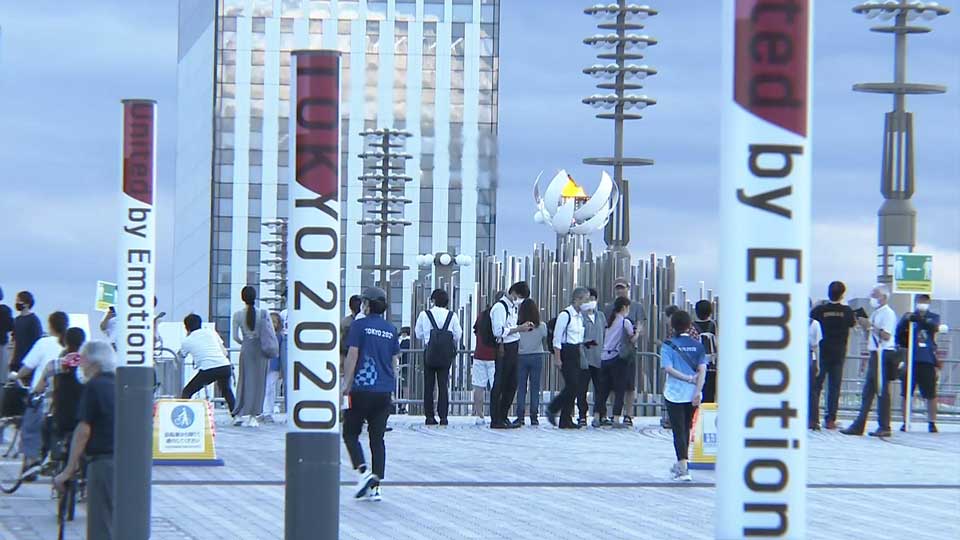
A senior health ministry official, speaking Tuesday in an unofficial capacity, agreed that the current state of emergency has not proven as successful as previous ones, and said excitement over the Olympics was partly to blame.
Prime Minister Suga Yoshihide, also speaking on Tuesday, had a different view. He said the number of people going out has decreased because of the restrictions, and brushed off suggestions that the Olympics could be canceled. He said the rising infection numbers were due to the highly contagious Delta variant. "We will work with local governments to prevent infections with a strong sense of caution," he said.
But another health ministry official, speaking unofficially, said that may be difficult because the central government has lost the trust of the people and will struggle to win support, whatever message it comes up with.
Tokyo governor Koike Yuriko suggested the problem lies with the actions of young people who have not been vaccinated. She urged everyone to continue basic anti-virus measures, such as refraining from going out unless absolutely necessary.
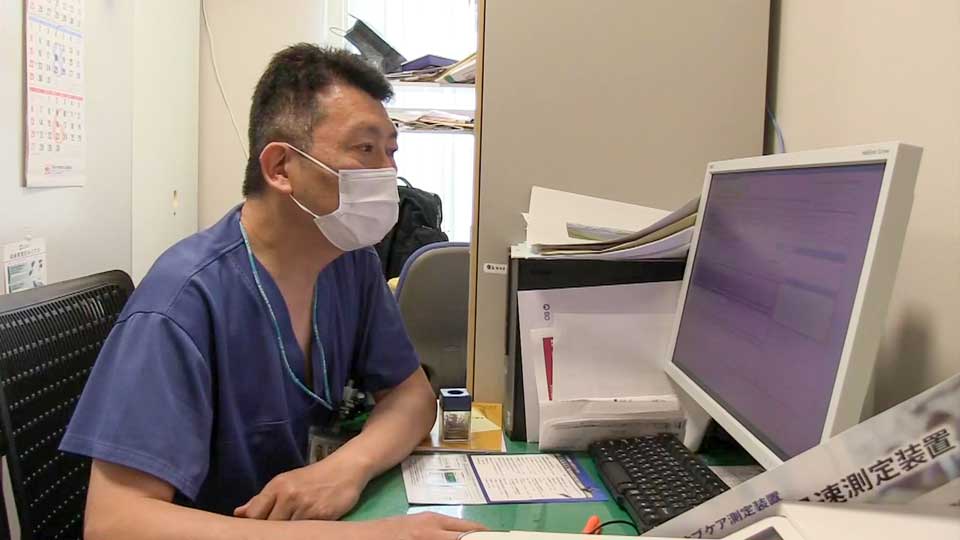
The spike in infections is pushing Tokyo's medical system to the brink of collapse.
Doctor Miura Kunihisa says his Tokyo Hikifune Hospital is now full, but people are still coming in with fevers, and the summer heat makes it difficult to distinguish between symptoms caused by the coronavirus and heatstroke. He says they have to treat everyone on the assumption that they are infected with the virus. And the Tokyo Games are increasing the burden as the hospital has had to send eight medical staff to the Olympic venues. "It's endless," says Miura. "We're doing all we can, but we're hitting our full capacity."
